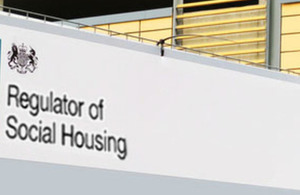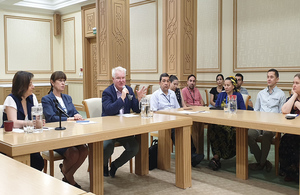Study launched to monitor prevalence of COVID-19 in schools
- Teachers and pupils to be voluntarily swab tested as part of new COVID-19 surveillance study
- Up to 100 schools tested across England by end of summer term
- Data used to better understand the rates of transmission within schools
A new voluntary COVID-19 study to assess and monitor the prevalence of COVID-19 among pre-school, primary and secondary school pupils and teachers has been launched by the government.
Public Health England’s (PHE) study will add to data on antibody and virus prevalence already being collected through national surveillance programmes and other nationwide studies, which report weekly.
The initial phase will collect data from up to 100 schools from across England, including 15 schools in London, with results available over the summer. We are targeting around 200 staff and children at each school.
Data will be fed back to inform a potential second phase study in September.
Health Secretary Matt Hancock said:
A critical pillar of our COVID-19 testing strategy is surveillance – testing samples of the population to gain a deeper understanding of the spread of COVID-19, especially in those who may not have symptoms.
This study will help us better understand how common asymptomatic and mild cases of COVID-19 are so that we can support parents, pupils and teachers and support staff, and inform our ongoing response to this new virus.
Generally, children have been shown to be asymptomatic. This surveillance study will seek to better understand rates of transmission in children and adults within schools over the coming months by swab testing to see if they have the virus.
A small proportion of schools will also be offered antibody tests by phlebotomists, medical professionals who are fully trained to collect blood samples from patients. Roughly 40% of schools selected for the study will receive antibody and swab tests before the summer holidays.
Participation from schools is on a voluntary basis, and all parents and guardians will be asked to provide informed consent for their children or dependents prior to testing.
We are working closely with the Department for Education to identify suitable schools who may wish to be part of the initial phase of the study.
Dr Shamez Ladhani, Paediatric Infectious Diseases Consultant, Public Health England, said:
We are delighted this study is up and running in schools across England. By working with students and staff we’ll be able to better understand infection and transmission of asymptomatic and mild infections of COVID-19 that may have otherwise remained undetected.
The results of this study will play an important role in informing wider surveillance planned for educational settings in the autumn term.
Through active surveillance, contact tracing and the close monitoring of any clusters of cases, we are committed to ensuring the safety of students and staff returning to school in the coming weeks and months.
Education Secretary Gavin Williamson said:
We know that being in school is vital for children’s education and their wellbeing.
Last week, primary schools began to welcome back some pupils and secondary schools will begin to do the same from 15 June, as part of our phased and cautious approach to getting children and young people back into the classroom.
Studies like this will be invaluable as we continue moving forward with those plans, and help us assess the next steps for getting all children back into schools, nurseries and colleges with their friends and teachers.
The participating schools will issue invitations to take part in the study and parents or carers will have an opportunity to ask questions and will be encouraged to involve their children and explain how they can help by taking part.
Children will receive age-appropriate information sheets and will be encouraged to co-sign the consent form with their parents or carers.
We want to ensure that pupils and staff receive the best possible care and treatment from clinical staff collecting swab and blood tests. We are seeking Headteacher and parent permissions prior to any data collection
The testing procedures are completely safe. The test to determine whether someone currently has the virus involves swab of the inside of their nose and the back of their throat, using a long cotton bud. Trained paediatric staff will take all blood samples from children. Trained medical professionals will visit schools to carry out the testing.
The antibody test to determine whether someone has had the virus and developed antibodies requires a blood sample.
Surveillance studies form part of pillar 4 of the government’s COVID-19 testing strategy, under which several national level studies have already launched. The studies aim to conduct UK-wide surveillance testing to learn more about the spread of the disease and help inform the development of new tests and treatments.
This new sector-specific study builds on the data being gathered at a national level through swab and antibody tests conducted as part of an Office for National Statistics (ONS) COVID-19 Infection Survey which has tested over 35,000 households to date, and an Ipsos MORI study of 100,000 people looking at rates of antibodies across England. To date these studies have administered over 200,000 tests since the end of April.
- Children who are currently attending primary and secondary school during the lockdown and staff will be invited to participate
- Invitation will be made via schools (through email and/or letters) to staff and parents/guardians
- In all instances, informed consent will be obtained from staff and parents/carers prior to involving the children in the study
- Staff and parents/carers will be provided an information sheet and consent form
- Staff and parents/carers will have an opportunity to ask any questions by telephone, email or in person (on the day of testing)
- PHE will ask parents/carers to involve their children by explaining why this surveillance is being undertaken and how the children can help by taking part. Children will receive age-appropriate information sheets and will be encouraged to co-sign the consent form with their parents/guardians
- Completed consent forms will be stored securely at participating NHS sites
- We will also ask staff and parents/carers for consent to contact them in the future if additional information or sample(s) is required
- Schools are being approached to participate in the study through the Department for Education

